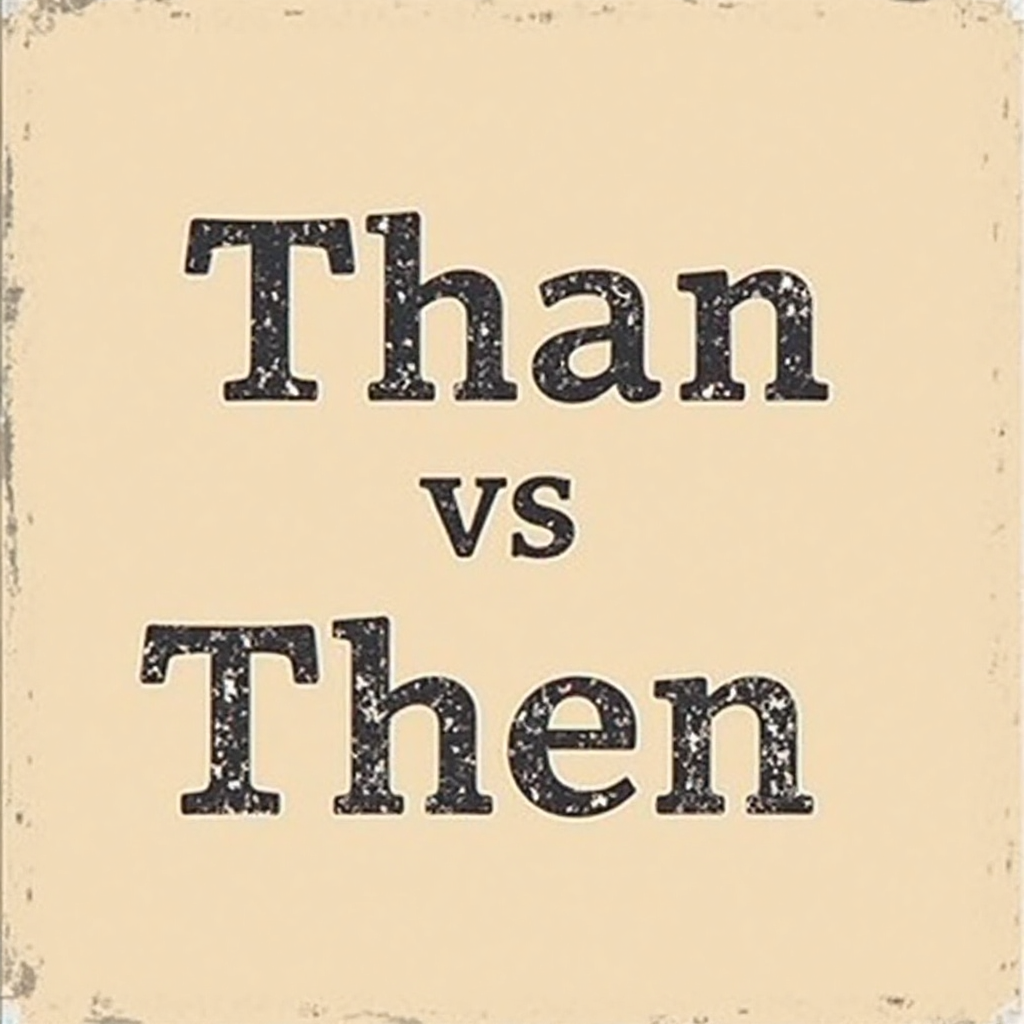“Than” vs. “Then” - What’s the Difference?

English can be tricky when two words look and sound almost the same. Than and then are a perfect example. Many learners (and even native speakers) get them mixed up, especially when writing quickly.
But don’t worry—Midoo AI is here to clear things up. Once you learn the difference, you’ll use these words correctly with ease.
Than – Used for Comparisons
Than is a conjunction. It’s used when comparing two things. If you’re saying one thing is bigger, smaller, faster, or different from another, you’ll probably need than.
Examples of “Than”:
- She is taller than her brother.
- My coffee is colder than yours.
- It’s better to be safe than sorry.
- I would rather read a book than watch TV.
- He has more experience than anyone else in the room.
👉 Tip: If you’re making a comparison, always use than.
Then – Talking About Time or Order
Then is usually an adverb. It refers to time (what happens next) or the result of something.
Examples of “Then”:
- I’ll finish my homework, and then I’ll watch a movie.
- Back then, we didn’t have smartphones.
- If you’re ready, then let’s go.
- We went to dinner, then we saw a show.
- She looked at him and only then understood the truth.
👉 Tip: If you’re talking about time, sequence, or consequence, use then.
Why Do People Confuse Them?
The confusion comes from the fact that than and then sound very similar, especially in fast speech. But their meanings are completely different. A good trick is to stop and ask yourself:
- Am I comparing two things? → Use than.
- Am I talking about time or what happens next? → Use then.
Quick Memory Trick
Midoo AI suggests this simple way to remember:
- Than = comparison → notice the a in both words.
- Then = time → notice the e in both words.
This little spelling connection makes it much easier to pick the right one.
FAQs
Can “than” ever be used for time?
No. “Than” is only for comparisons. If you want to talk about time, always use “then.”
Is it wrong to mix them up in texting?
People might still understand you, but it’s better to use the right word—especially in school or work writing.
Can “then” mean “at that time”?
Yes! Example: I was living in London back then.
Can “than” come after “rather”?
Yes. Example: I’d rather walk than drive.
What’s the best way to practice?
Write five comparison sentences using than and five time/order sentences using then. Checking them daily will help you remember.
Final Thoughts
The difference between than and then is simple once you know the rule. Than is for comparisons, while then is for time or order. They may look similar, but their jobs in English are very different.
Midoo AI recommends practicing with short examples every day. Soon, you’ll spot the difference instantly and never confuse them again!